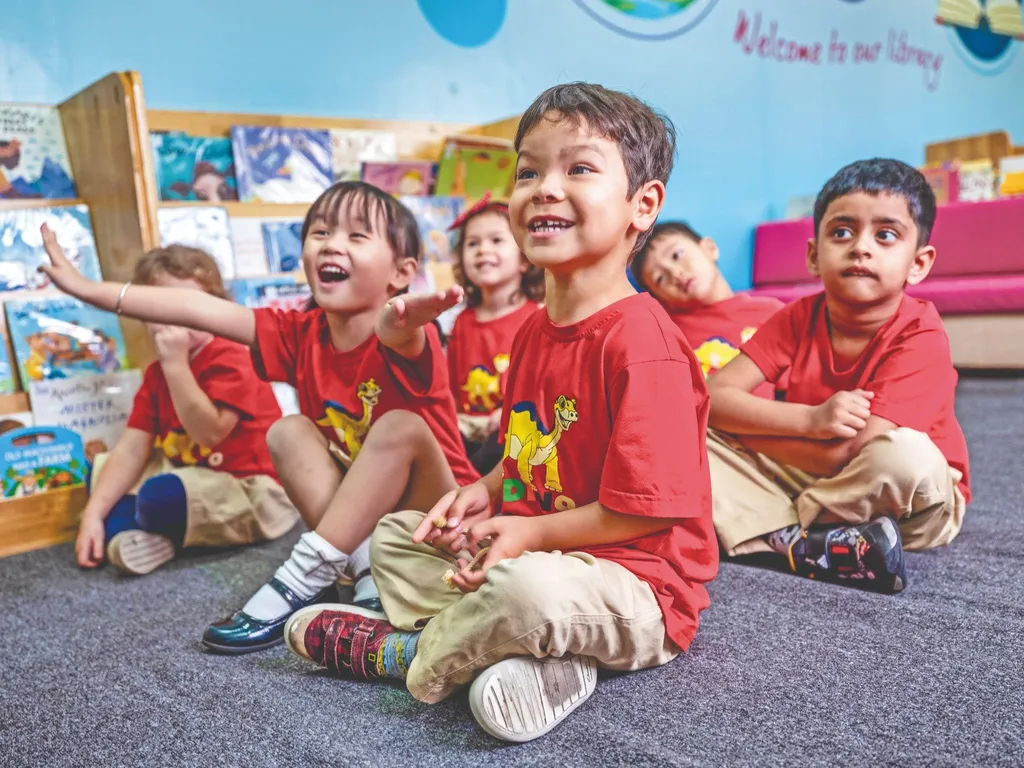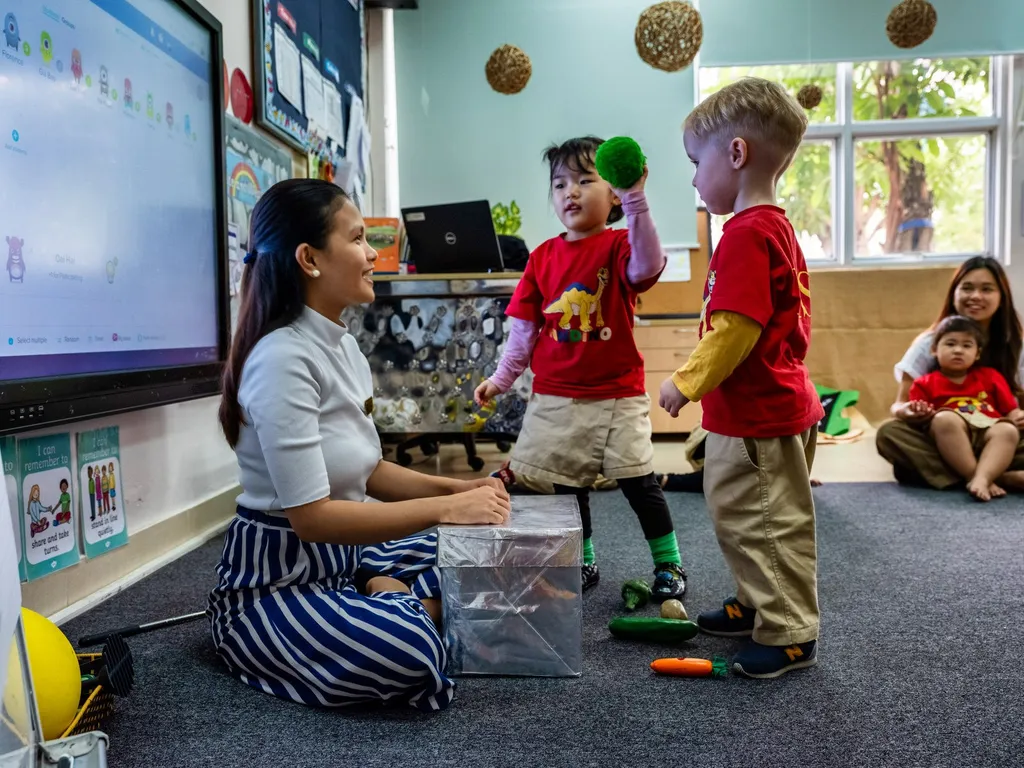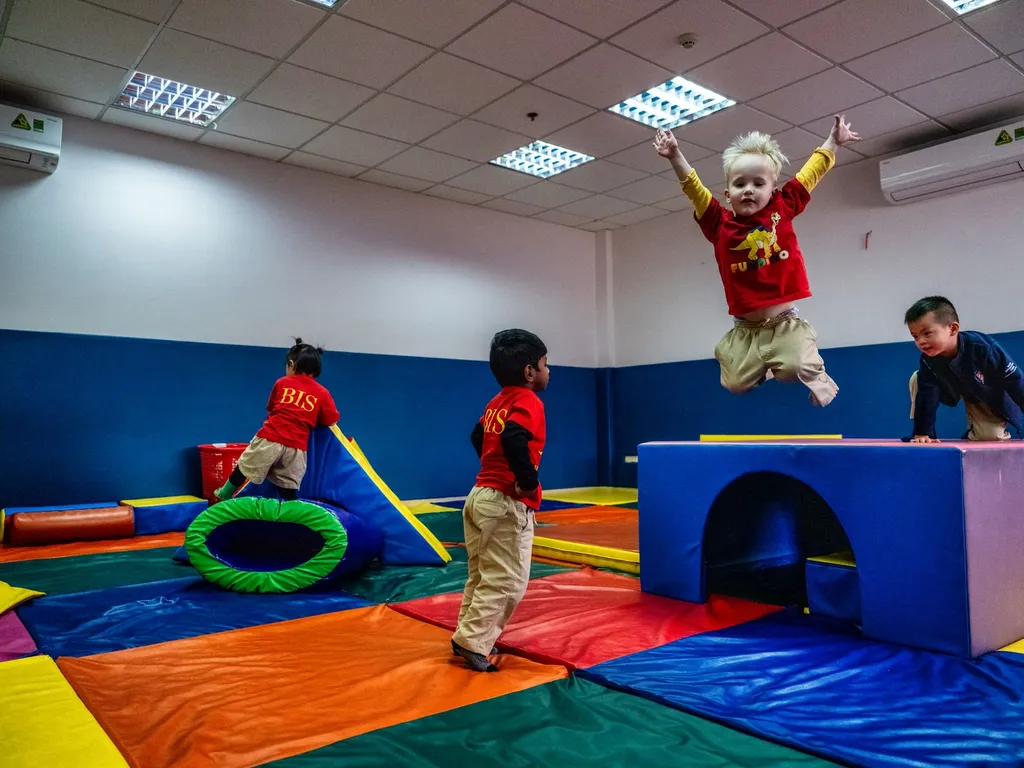 advertisement
advertisement

Children are born curious; they have a natural urge to learn everything they can about their world. This curiosity also underpins how young children learn: they become curious, ask questions, and seek answers.
That is why it is so important to nurture curiosity in children at an early age. It is critical for a child’s development and well-being to allow them to be interested in and explore their surroundings.
Curious children are more likely to absorb and retain information, stay engaged in school, and achieve academic excellence.
 |
| 1 |
{ "id": "uW_-6f8j9H", "type": "myToolImages", "data": { "data": "" } }
Early Years Education at BIS Hanoi
The Early Years Foundation Stage curriculum at the British International School (BIS) Hanoi provides a platform to help every child reach their full potential.
The school welcomes children between ages 2 and 4 to our colourful Early Years learning campus. By starting at an early age, children can develop the social, emotional, and cognitive skills they need to take confident first steps in a long and successful educational journey.
Nurturing curiosity through personalised learning is a key pillar of our Early Years Foundation Stage curriculum. The youngest learners at BIS Hanoi enjoy a child-centred, play-based curriculum that uses teaching and learning materials from the British Early Years Foundation Stage Framework.
 |
{ "id": "agBbf2Xl2Z", "type": "myToolImages", "data": { "data": "" } }
{ "id": "9wz4UT_Egb", "type": "myToolImages", "data": { "data": "" } }
Personalised Learning: A Child-centred and Play-based Curriculum
A child-centred and play-based curriculum benefits both students and teachers alike. The children can develop key skills such as language, communication, and critical thinking and gain self-confidence. Teachers can get to know individual students and tailor learning opportunities to align with the type of play that each child engages with the most.
Early Years classes at BIS Hanoi have a limited number of students (an average of 20). This allows teachers to observe each student and understand their curiosities, needs and learning styles most suitable for them.
Instead of asking the children to sit and listen to a lecture, teachers will prepare a range of activities for children to enjoy in small groups based on their interests. The interaction of each child within the lesson, as well as with friends and classmates, is carefully observed.
The curriculum also encourages children to take learning into their own hands. To promote independent and active learning, the children are given choices concerning what they want to learn and play with.
Thanks to the numerous diverse play environments at our Early Years campus, each child can explore their own interests and curiosities. Facilities include a soft playroom, multi-purpose room, outdoor playground with a sand pit, climbing apparatus, and a splash pool.
 |
{ "id": "fKN5cFv_KY", "type": "myToolImages", "data": { "data": "" } }
{ "id": "LkN0qqbzEl", "type": "myToolImages", "data": { "data": "" } }
Nurturing Curiosity for Effective Learning
Nurturing the curiosities of our youngest learners is achieved with a focus on three core methods of effective learning: Engagement, Motivation and Thinking.
Playing and Exploring – Engagement
Play-based learning is essential for developing a child’s healthy social and emotional behaviours. Younger children learn to collaborate, communicate, and engage with peers when they play with others. These connections allow them to form bonds and develop emotional and social intelligence.
Active Learning - Motivation
Our teachers encourage children to interact actively and imaginatively with people, objects, and their surroundings. This helps every child to acquire new abilities through experiences and play opportunities. It also fosters a confident and positive attitude towards learning in the children.
Creating and Thinking Critically - Thinking
Flexible and creative thinking happens when children are allowed to make their own discoveries and explore the environments around them independently (safely facilitated by their teachers). These simple but effective exercises use guided, play-based learning to continuously and consistently build a child’s critical thinking skills.
Discover more about the Early Years Foundation Stage curriculum at BIS Hanoi
Find out how the EYFS curriculum at BIS Hanoi can help nurture your child’s development. Visit the BIS Hanoi website or contact the school at bishanoi@bishanoi.com.




